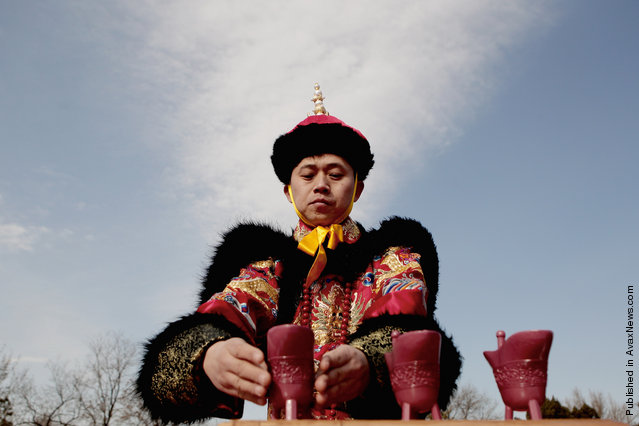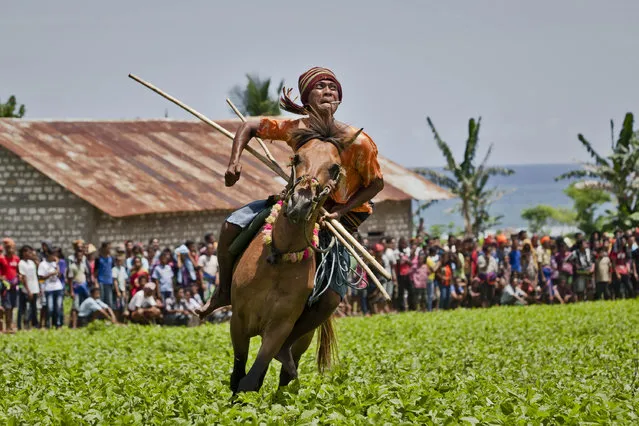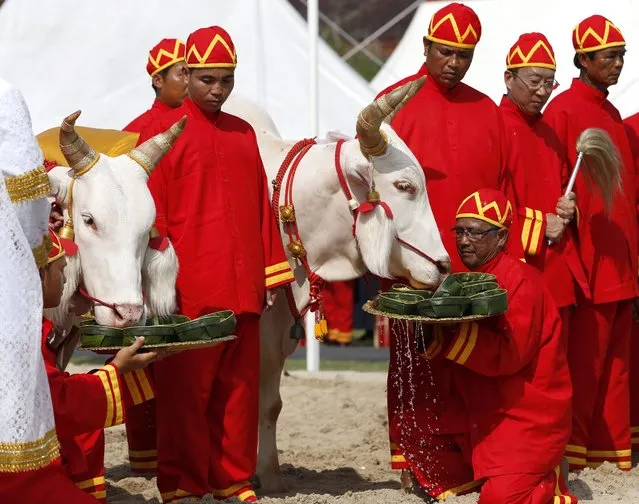
A performer plays the role of the Emperor during a re-enactment of an ancient ceremony of Qing Dynasty Emperors praying at Ritan Park which holds the ceremony of 'fete day'' to mark the first day of spring on March 21st, 2011 in Beijing, China. March 21st is the Day of Vernal Equinox according to the Chinese lunar calender. (Photo by Lintao Zhang/Getty Images)
21 Mar 2011 19:07:00,post received
0 comments







